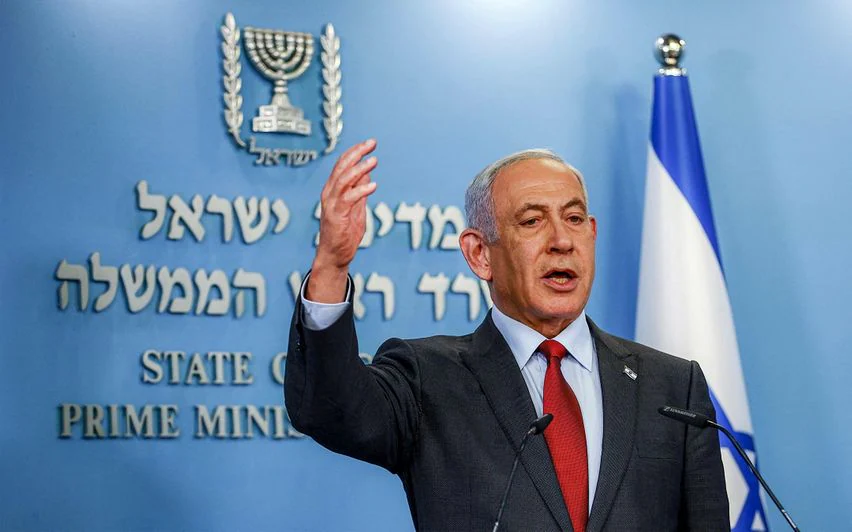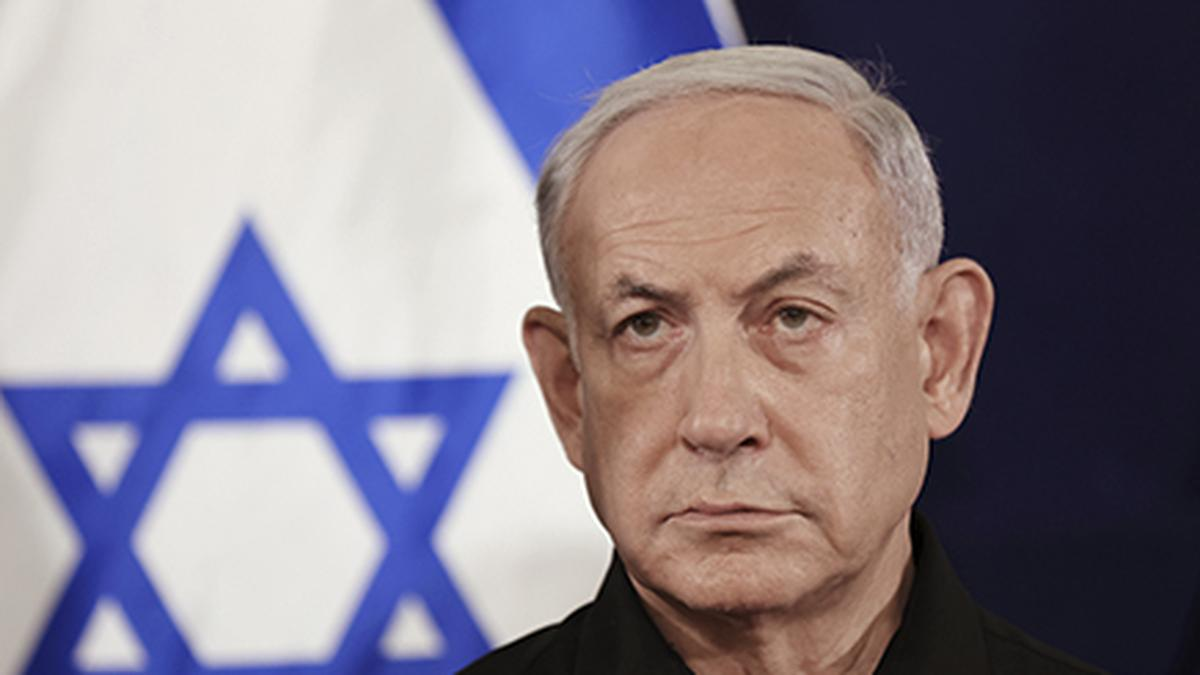Israeli Prime Minister Benjamin Netanyahu recently declared that the war in Gaza is far from over, despite the alleged killing of Yahya Sinwar, a top Hamas leader accused of orchestrating the deadly attacks of October 7.
The announcement has stirred both hope and skepticism among world leaders, with some seeing the moment as a potential turning point in the conflict, while others caution that the underlying tensions are far from resolved. The situation remains tense as the war, which has already claimed tens of thousands of lives, continues to rage on.
Netanyahu’s Assertion: War Not Over Yet
In a televised address, Netanyahu emphasized that while the death of Yahya Sinwar, allegedly in a firefight in Rafah, marks a significant achievement, it does not signal the end of the ongoing military campaign in Gaza.
Netanyahu referred to the killing as “the beginning of the end,” stating that “evil has suffered a heavy blow,” but cautioning that the task ahead remains unfinished. His words resonated with other Israeli political figures, most notably Benny Gantz, leader of the center-right National Unity party.
Gantz, who previously resigned from Netanyahu’s emergency war cabinet over differences in handling the war, reaffirmed that the mission is ongoing and Israeli forces would continue operations in Gaza for years if necessary.
Read : Hamas Aerial Chief Behind Paraglider Infiltration in Israel Killed
The military chief, Herzi Halevi, also reiterated that the Israeli Defense Forces (IDF) would persist in their efforts until all those responsible for the October 7 attacks are captured, and all hostages are safely returned to Israel.
Read : Israeli Foreign Minister Threatens Iran, Saying It ‘Deserves to Be Destroyed’
While the Israeli government’s stance remains firm, Hamas has yet to confirm or comment on Sinwar’s alleged death, leaving a shroud of uncertainty over the event. Yahya Sinwar, a figure often described as the mastermind behind several Hamas operations, was viewed as a critical target for Israeli forces.
His demise, if true, is seen as a severe blow to the militant organization, but questions linger about whether it will genuinely halt the group’s operations or intensify their resolve. Israeli leaders have expressed hope that this loss will weaken Hamas’s grip over Gaza and accelerate the resolution of the conflict.
International Reactions: Hope for a Ceasefire?
The international community has responded to the news of Sinwar’s alleged killing with a mixture of relief and guarded optimism. United States President Joe Biden, whose administration has been a staunch political and military ally to Israel throughout the conflict, expressed hope that the death of the Hamas leader would present an opportunity for peace.
Biden described the moment as a potential opening for a “day after in Gaza,” envisioning a future political settlement that could bring an end to hostilities and secure a better future for both Israelis and Palestinians.
Biden’s perspective was echoed by other Western leaders, including US Vice President Kamala Harris, who noted that this moment could be a turning point in the war’s trajectory.
Speaking at a campaign event in Wisconsin, Harris underscored the need for an end to the conflict that ensures Israel’s security, frees the remaining hostages, and paves the way for Palestinian self-determination. European leaders also shared similar sentiments.

French President Emmanuel Macron, speaking after European Union summit talks, labeled Sinwar’s alleged death a “turning point” and urged all parties to seize the opportunity to end the war and secure the release of hostages. Italian Foreign Minister Antonio Tajani similarly expressed hope that the event would lead to a ceasefire and bring an end to the violence.
However, despite these expressions of optimism, Israeli leaders have tempered expectations. While Netanyahu acknowledged that the killing of Yahya Sinwar brings the end of the war closer into view, he also maintained that Hamas must lay down its arms and release Israeli hostages for the conflict to conclude. This hardline stance suggests that a ceasefire is unlikely in the immediate future, as Israeli forces continue their operations in Gaza.
Challenges to Peace: Rooted in Deep Seated Issues
Despite the positive reactions from some world leaders, others remain skeptical about the long-term impact of Sinwar’s alleged death on the Gaza conflict. Daniel Levy, president of the US/Middle East Project and a former adviser in the Israeli government, warned that the killing of Yahya Sinwar is unlikely to end Palestinian resistance.
Levy compared the situation to the US’s killing of Osama bin Laden, noting that while it was a symbolic victory, it did not end the broader issues driving extremism and conflict. He argued that Hamas, like other militant groups, is rooted in the Palestinian people’s experience of oppression and denial of rights. As long as these underlying grievances persist, so too will the resistance movement.
Levy’s remarks highlight a critical challenge in resolving the Gaza conflict. While Sinwar’s death may disrupt Hamas’s leadership in the short term, it is unlikely to address the broader issues that fuel Palestinian anger and resistance.
For many Palestinians, Hamas represents not only a militant organization but also a symbol of defiance against Israeli occupation and a voice for their struggle for dignity, security, and self-determination. As long as these grievances remain unaddressed, the cycle of violence is likely to continue, regardless of who leads Hamas.

The human toll of the conflict continues to grow, with at least 42,409 Palestinians reported killed in Gaza since the war began, according to the enclave’s health ministry. Meanwhile, more than 1,130 Israelis were killed in Hamas’s October 7 attacks, with at least 101 hostages still missing or held by Hamas.
These staggering numbers underscore the immense human suffering on both sides and the urgency of finding a solution to the conflict.
In this context, the killing of Sinwar, while significant, is unlikely to be the final chapter in the Gaza war. As long as the core issues of occupation, blockade, and political disenfranchisement remain unresolved, peace will remain elusive.
The challenge for both Israeli and Palestinian leaders, as well as the international community, is to find a way to address these underlying issues and build a path toward lasting peace.
The alleged killing of Yahya Sinwar by Israeli forces marks a significant moment in the Gaza conflict, but it is unlikely to bring an immediate end to the war. Israeli Prime Minister Netanyahu has made it clear that the military campaign will continue until Hamas is disarmed and Israeli hostages are returned.
While Western leaders have expressed hope that Sinwar’s death could lead to a ceasefire and a political settlement, the reality on the ground suggests that the war is far from over.
The Gaza conflict is deeply rooted in historical grievances and political disputes that cannot be easily resolved through military action alone.
As Daniel Levy and others have pointed out, the killing of a key Hamas leader may weaken the organization in the short term, but it will not end the Palestinian resistance as long as the underlying issues of occupation, oppression, and denial of rights persist.
For now, the war in Gaza continues, with both sides suffering immense losses. The international community must continue to push for a ceasefire and a peaceful resolution to the conflict, but achieving lasting peace will require addressing the root causes of the violence and ensuring that both Israelis and Palestinians can live in security, dignity, and freedom.

